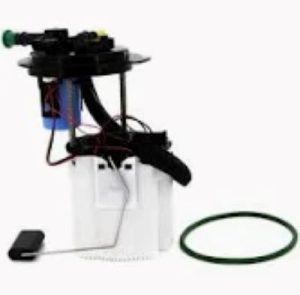All fuel pumps are designed differently and serve different purposes, with each pump working particularly well on a certain type of engine and pressure specifications. Three types are mechanical, electric and high performance fuel pumps & each pump service in different automotive.
Mechanical fuel pumps, which we find on conventional engines use a diaphragm operated by the camshaft to draw fuel from the tank and force it into the carburetor. Running much lower pressure than a fuel-injection pump—around 4 to 10 psi (pounds per square inch)—A carbureted engine has no use for the high-pressure fuel delivery a modern EFI pump provides. They are proven and dependable but have long been replaced by electric pumps for a reason – since mechanical pumps just can't supply the kind of high, consistent fuel pressure required by today's fuel-injected engines.
The electric fuel pump, which has become standard in most fuel injected vehicles, is usally inside the gas tank. The pumps can deliver between 40 and 60 psi of pressure, which works perfectly for engines needing consistent fuel flow for proper combustion. Electric pumps are better able to respond to the demands of the engine, adjusting their flow rate for optimal fuel consumption. Electric fuel pump service life is usually 100,000 to 150,000 miles and better due to up-to-date technologies that help minimize tear and wear.

They are designed for use with modified or high-output engines particularly in racing and high performance applications such like street-racing, drag racing etc. These pumps, as powerful as they are, cannot provide enough flow or pressure for higher power applications above 400 hp. The 255 LPH (liters per hour) are a more high-performance fuel pump that can handle turbocharged, supercharged, or nitrous with no problem. With high power engines you run the risk of running lean at WOT if the fuel flow is not up to par, risking engine damage or loss of performance at high RPMs.
As the famous automotive expert Carroll Shelby once said, “Power is nothing without control. The very reason for the existence of high-performance fuel pumps is to keep engines running as they should and always on top gear, whence these fuel-injected engines need all the gasoline it needs by ensuring regular gas flow. Fuel Pump selection, when matched to the engine requirements ensures good performance and healthy life span, as each pump is engineered to bolt on with the pressure and flow requirements that are required to ensure fuel supply can get delivered efficiently and effectively into a variety of engines applications.